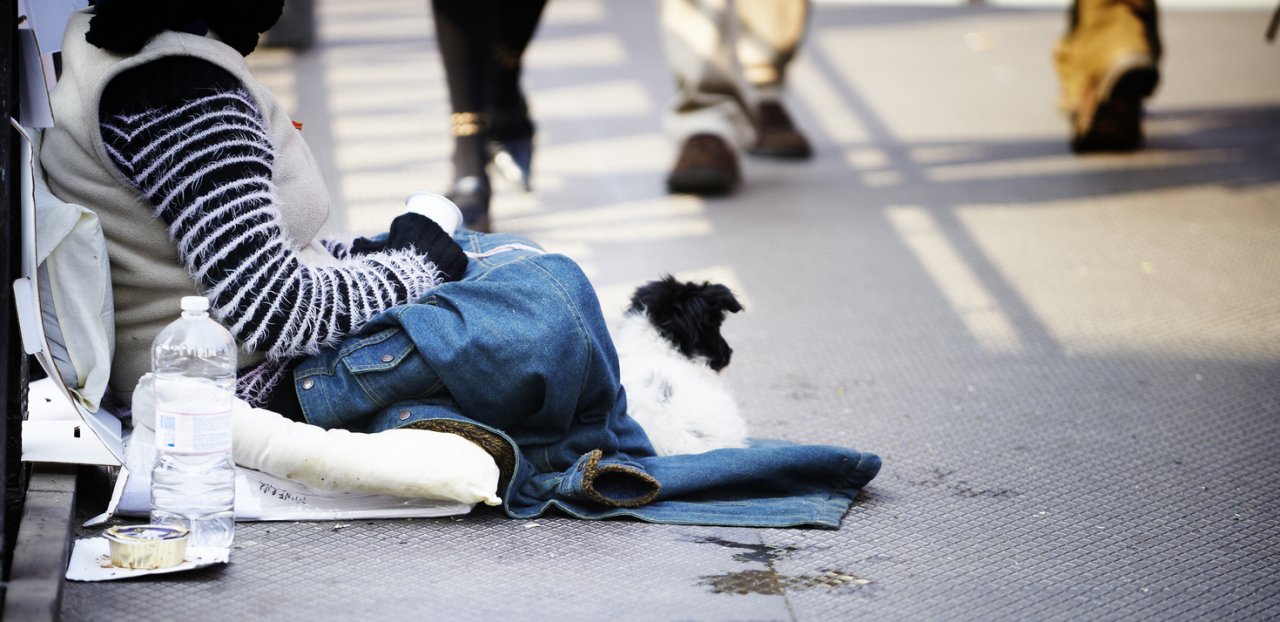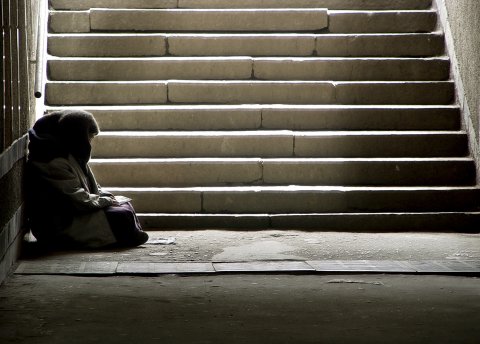Menstruation and homelessness
In the social discourse, menstruation is still a taboo. Therefore, the debate on access to menstrual products for all women often lacks attention. One group of people this particularly affects is homeless women. While more awareness of their situation has been built over the past year, there is still plenty of unmet needs - which also includes the medical sector.
Approximately 22,000 people are currently living without shelter in Austria, 31 percent of them are women. The number of unreported cases is probably even higher, because women often live in hidden homelessness, which does not show up in any statistics. This means that they live from one temporary shelter to the next in order not to have to sleep on the street.
Strong feeling of shame towards medical treatment
Compared to the general population, this marginalized group has a higher rate of developing multiple illnesses and an increased tendency toward chronic medical conditions. At the same time, they have limited access to regular ambulatory and stationary health care services. Reasons for this are stigmatization, a feeling of shame, isolation and fear of bureaucratic obstacles due to legal requirements. Also, there is unawareness of legal entitlements or fear of having to pay for treatment costs themselves. One reason why homeless people reject standard medical services is a lack of awareness of their own poor health and a failure to recognize the need to see a doctor.

One health risk that often goes unnoticed is menstruation. Many homeless women cannot afford sanitary products and instead use newspapers, socks or tissues, making them more vulnerable to illnesses such as fungal infections or STDs. "When a tampon or sanitary pad is used all day, germs and bacteria build up, leading to fungus and infections. There are infections that can grow up to the uterus - leading to infertility," explains Tanja Schmidt from the German organization "Straßenfeger."
When seeking medical services, barriers must also be reduced. Many women experienced bad situations in hospitals. " Anyone who has experienced violence over many years may not necessarily let the gynecologist use instruments, may not even want to undress and be inspected," says psychologist Lisanne Hamschmidt. "And those who don't have health insurance won't be treated by every medical specialist."
„The topic is slowly becoming mainstream, (...) as evidenced by inquiries from educational institutions and an extremely high level of willingness to donate.“
Since the topic is generally shameful, gender-specific doctors are needed, as Maja Markanovic-Riedl, director of Haus Miriam (Caritas) recently described at the networking meeting of the Platform for Health and Homelessness. Many of those affected find it difficult to go to the doctor and explain that they are in pain. Often it is also a credibility problem. Many homeless women have inhibitions about talking about period pain and needing painkillers. Those affected also often have a gynecological problem, she said. Because they live on the streets, they are inevitably exposed to stressful situations, so their periods often stops.
Also plenty of positive developments
At the same time, many homeless women lack consciousness about when their menstruation might occur, she said. Because homeless people deal with so many problems on a daily basis, they are not prepared for their periods. If menstruation does occur, the pain that accompanies it and the desire to withdraw pose a problem. in crowded and noisy facilitites there is a lack of privacy and access to painkillers is not guaranteed.
Due to the large number of people, noise and lack of privacy, this is difficult to achieve in institutions.
In particular, access to painkillers is not guaranteed.
In view of these problematic situations, exclusion becomes even more visible for those affected, says Markanovic-Riedl. Caritas therefore calls for more free toilets across the public space, which could be accessed with a chip system, for example, and where free hygiene products are available. Meanwhile there are several services offered by institutions that provide women's hygiene articles free of charge. These include the free box in the day center at the main train station, in the FrauenWohnZimmer and in the Ester shelter. However, there is still a lack of explanatory texts, for example in the form of pictograms and in foreign languages, to reach as many people as possible.
There is also a need for female-specific washing facilities. There is a need for educational work on access to a change of underwear or free hygiene articles. Gender-specific street work is needed here, in which women are approached by other women.
However, Markanovic-Riedl also sees many positive developments. The topic is slowly becoming mainstream, she says, as evidenced by inquiries from educational institutions and an extremely high level of willingness to donate. Last year, the organization was able to report a successful appeal for donations, collecting pads and tampons as well as clean underwear for women and girls.
There have also been positive developments regarding menstrual products in other European countries: In Scotland, free distribution outlets for tampons and pads have been set up this year in pharmacies, community centers and youth clubs. In Germany, France and the United Kingdom, the "tampon tax" has been reduced or abolished completely.
Shelterlessness: Homelessness refers to people who live without shelter on the streets or in public places, for example in hovels, parks or under bridges. However, the term also includes people who have no fixed abode and spend the night in warming rooms, emergency sleeping facilities and comparable institutions. Homelessness: Homeless people are without their own home, but not without shelter. They live temporarily with friends or acquaintances or in facilities or apartments of the homeless assistance. Immigrants and asylum seekers who live in reception centers, camps, shelters or hostels until their residence status is clarified are also considered homeless.
In a 2016 survey by Fonds Soziales Wien, those affected (female and male) cited job loss and resulting rental backlog (42%), separation or divorce (32%), and problems with mental (23%) or physical (21%) health as among the causes.
"People who do not have health insurance receive health assistance through the Vienna Social Assistance, which, analogous to the benefits provided by the Vienna Regional Health Insurance Fund, covers all medical care. These people receive sickness certificates through Magistratsabteilung 40. Viewed in this way, whether homeless or not, no one who is without health insurance should be without the possibility of medical treatment. With the health insurance vouchers of Magistratsabteilung 40, any established doctor in Vienna can be visited."
In Vienna, there are some services that specifically support women who are homeless or homelessness:
- Obdach Ester: Obdach Ester (offered by Obdach Wien) is open to women and children 365 days a year. The facility has showers, a washing machine with dryer, a kitchen and a rest room. Registration is not necessary. The offer is free of charge.
- Obdach Favorita: During the winter months, Obdach Favorita (offered by Obdach Wien) provides around 50 women with a bed for the night.
- FrauenWohnZentrum: The FrauenWohnZentrum is a Caritas facility and offers 32 places for women over the age of 18 in acute emergency situations who have no place to stay.
- Haus Miriam: Caritas' Haus Miriam offers 40 places in single and double rooms for women who are in an acute emergency situation.
- JUCA: At JUCA, a Caritas facility for young adults, four places are available in the emergency quarters for women aged 18 to 30.
- Notquartier Plus: The Notquartier Plus in the Rupert Mayer Haus offers shelter and protection to homeless women who are ill. Unlike other
Women's Helpline:
The Women's Helpline against Violence offers free and anonymous initial and crisis counseling by telephone around the clock for women, children and young people affected by violence: 0800/222 555.
